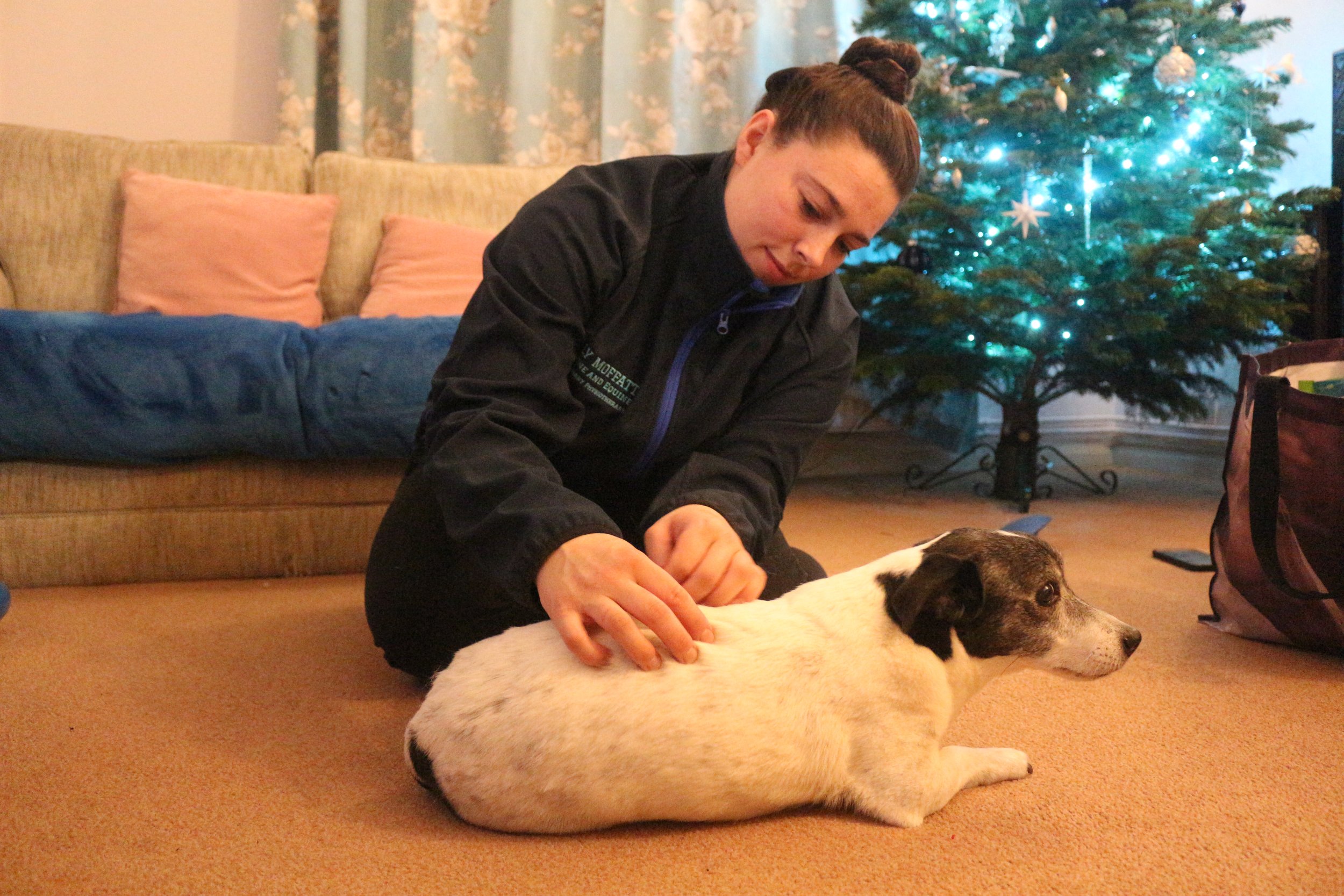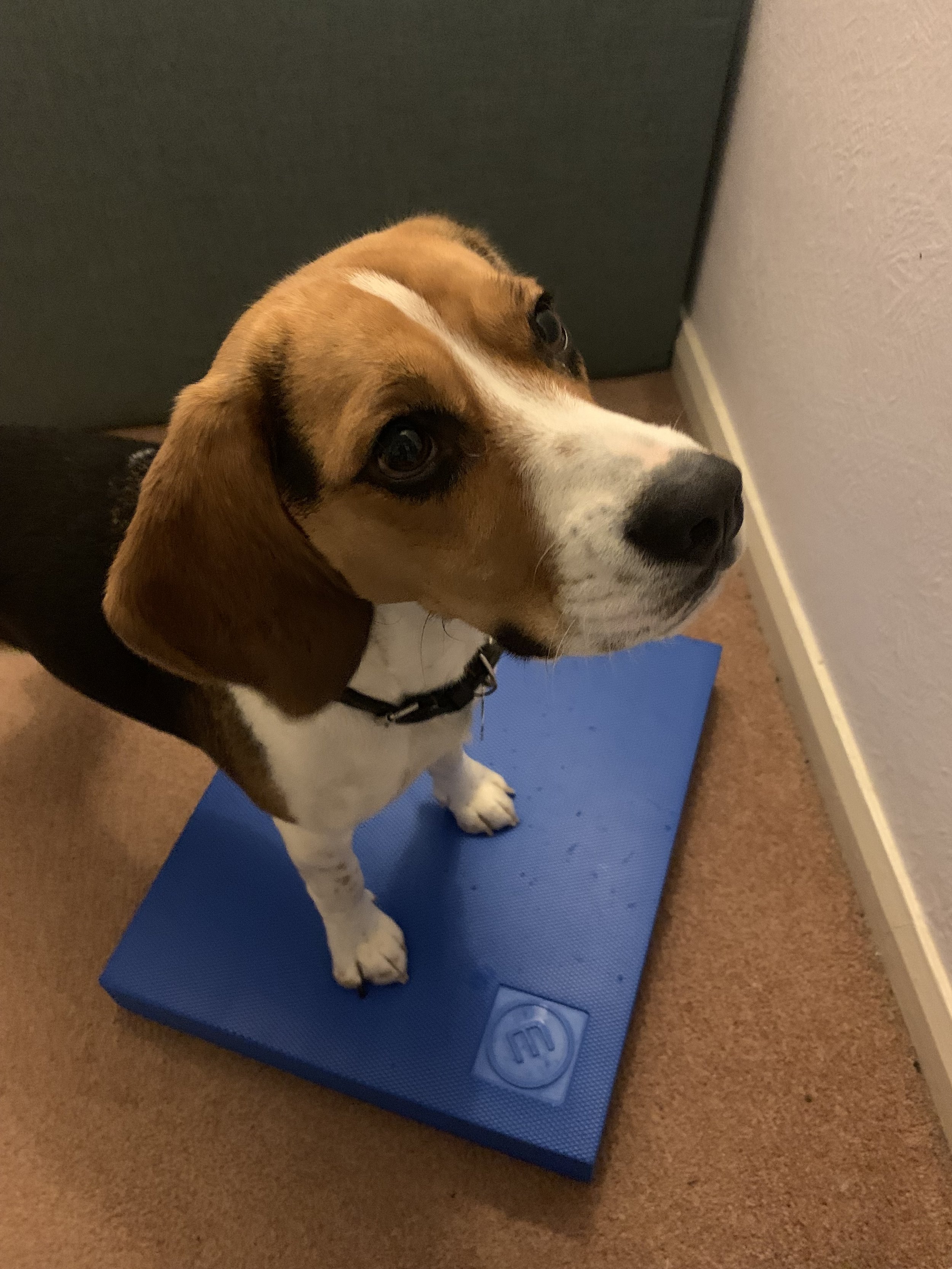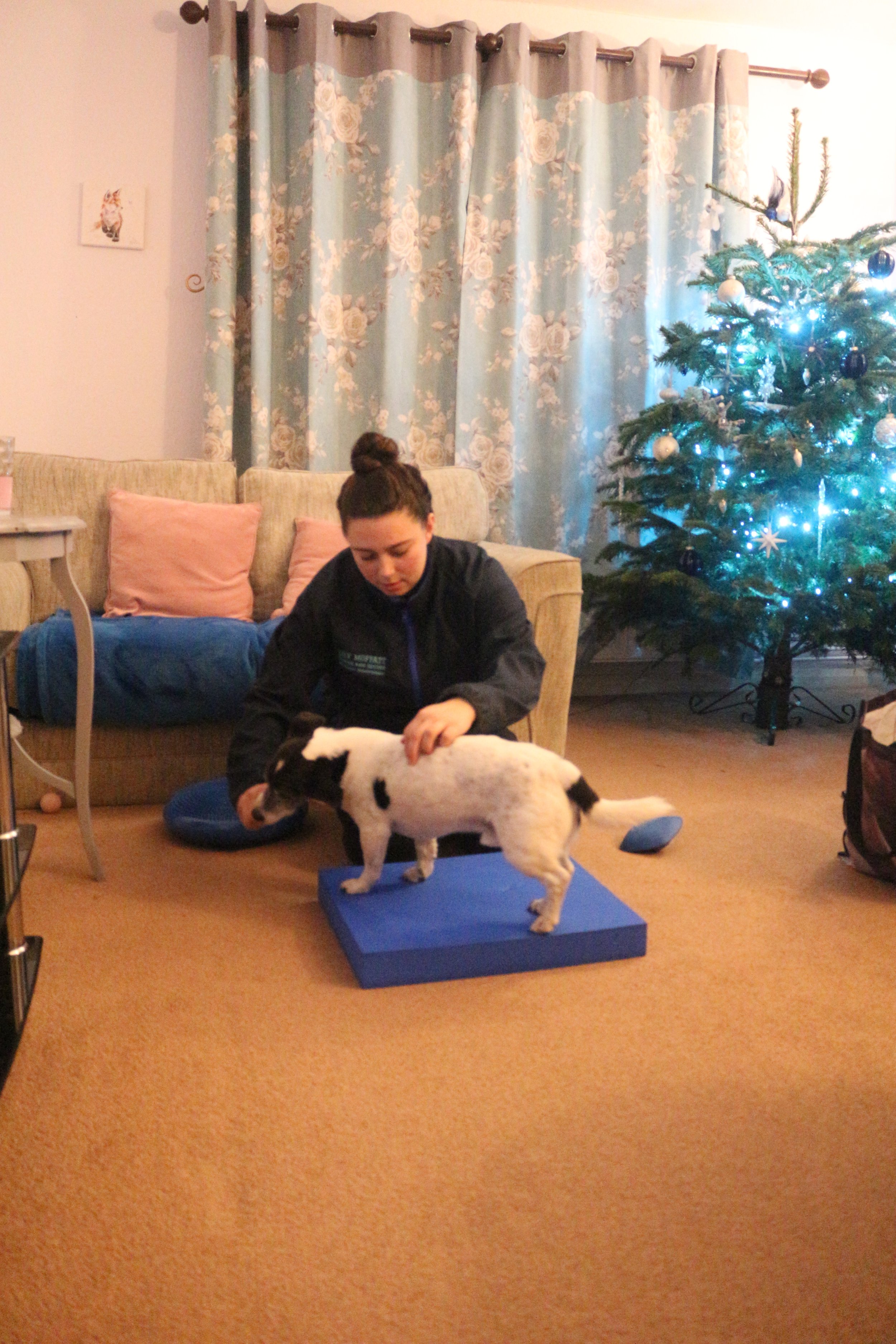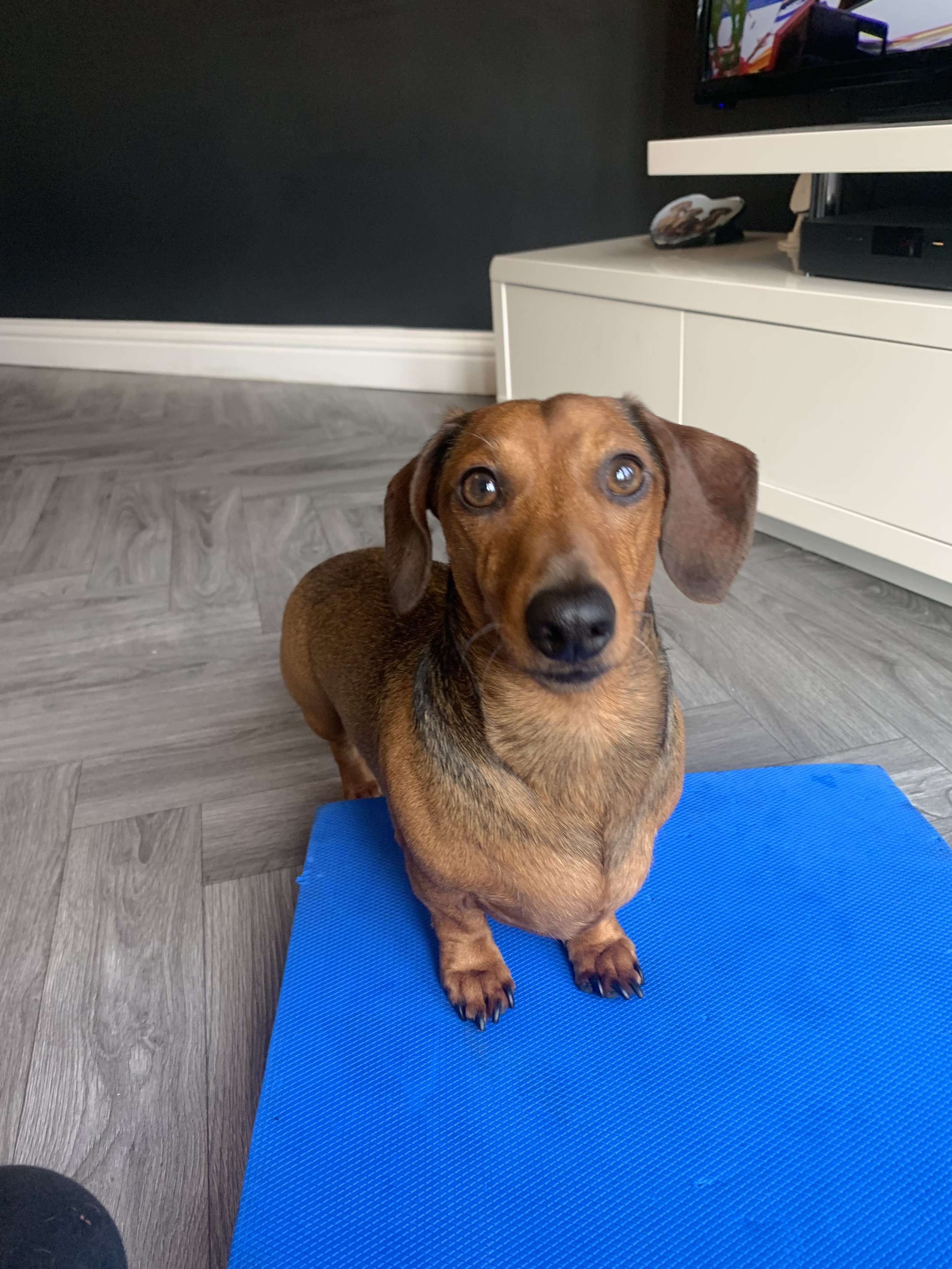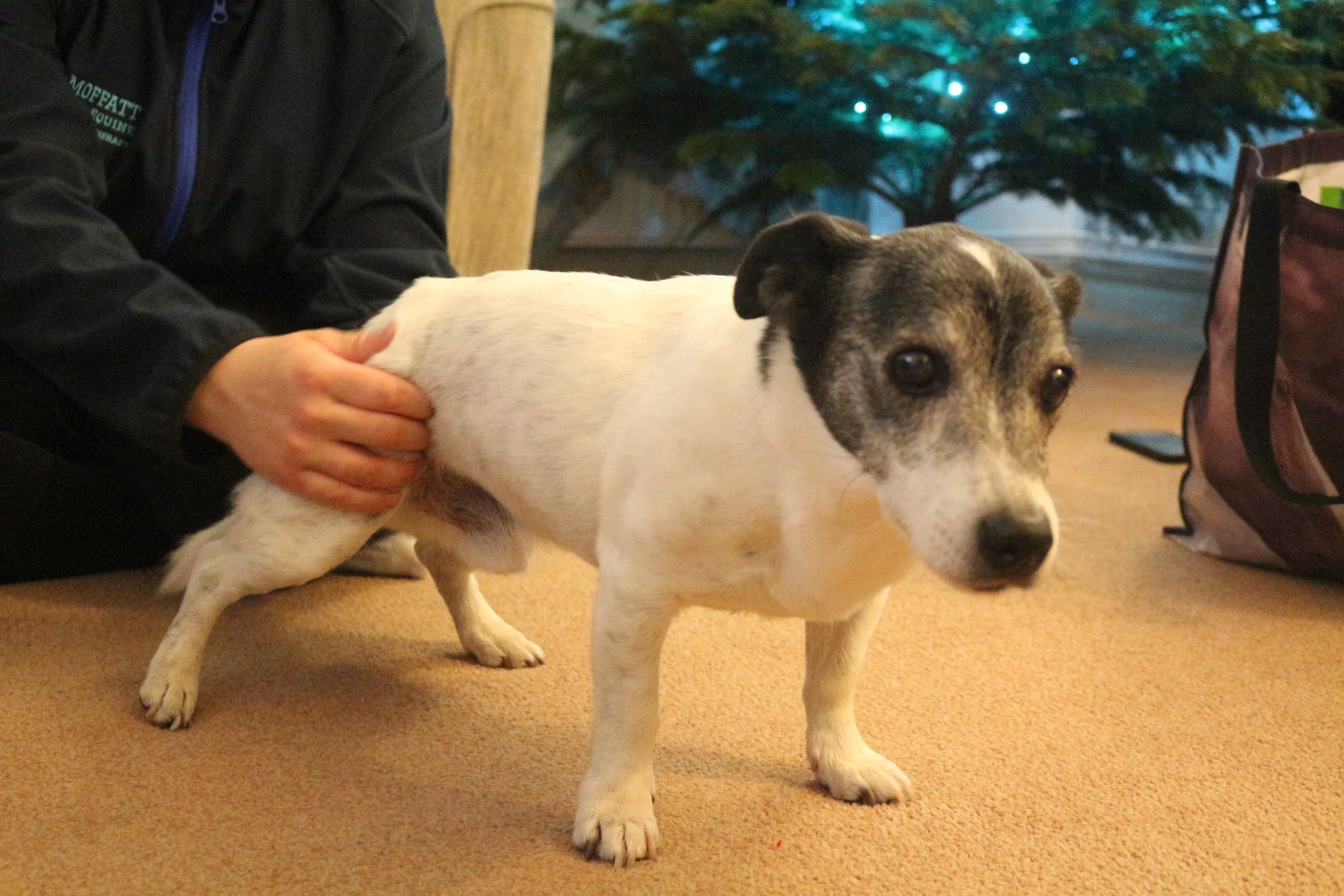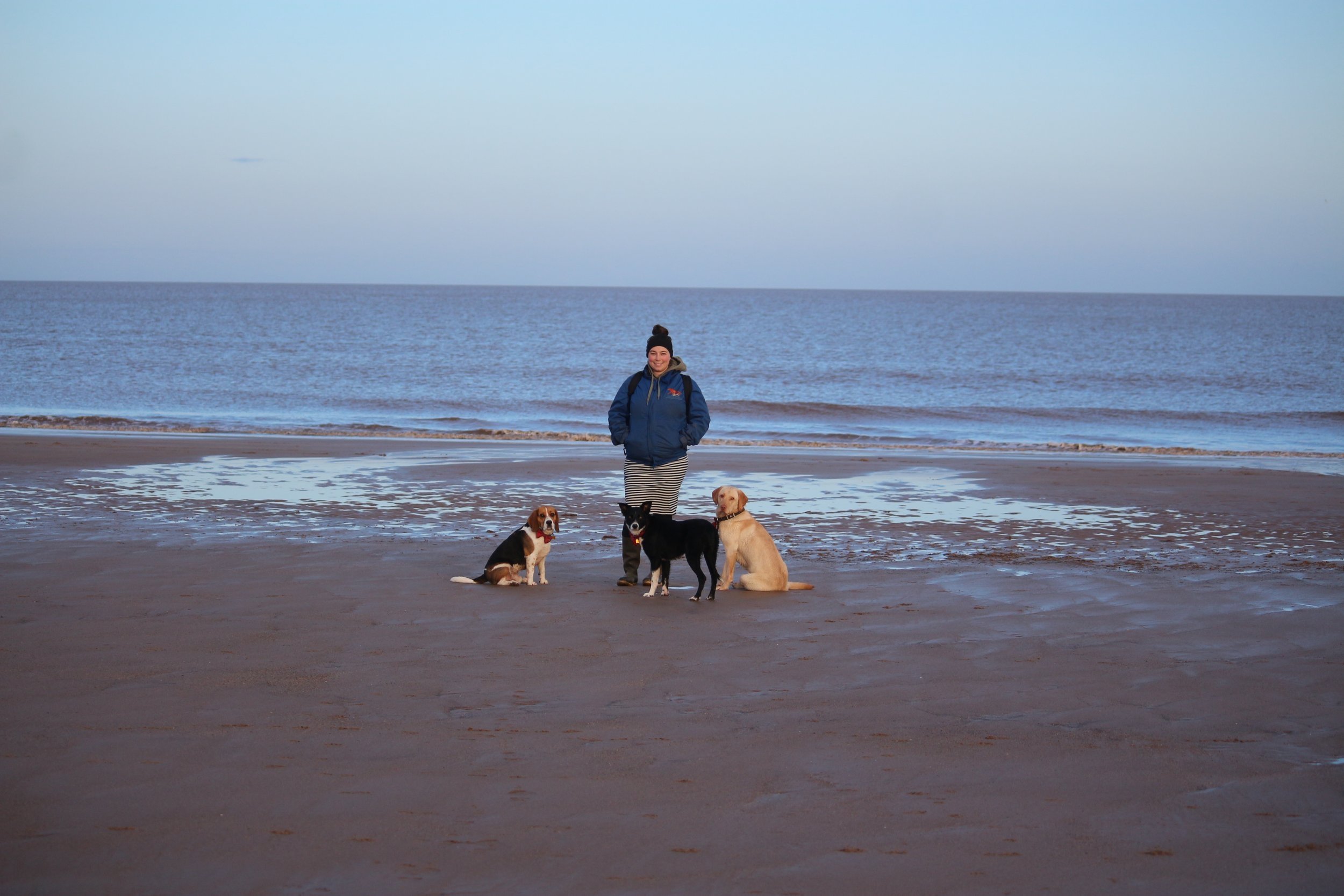
Canine Veterinary Physiotherapy
We all want the best for our dogs. It can be very upsetting for you as an owners if they become injured or start showing signs of pain. Veterinary Physiotherapy can provide alternative treatment to help support your dog in recovery, pain management and improve performance. Every dog is an individual and should be treated as such, from agility performance dogs to working dogs to our lovely loyal pets.
All animals at any age or condition can benefit from a routine veterinary physiotherapy check-up, just like when you have your animals annual health check. Prevention is always better than cure and early intervention can reduce long-term compensatory issues.
If your animal is unfortunate and has an underlying health condition then veterinary physiotherapy is an absolute necessity.
Here are a few common conditions aided by veterinary physiotherapy.
Muscle weakness
Osteoarthritis
Dysplasia (Hip, Elbow)
IVDD
Tendonitis
Luxating patella
Fractures
Spondylosis
Scar Tissue
Behavioural issues associated with pain
Obesity
Performance decline
Abnormal gait pattern
Limping/ Lameness
Mobility issues
Canine physiotherapy session £45 - up to 1hr 30mins
A thorough taking of the dogs veterinary and behavioural history.
The owners main goals for veterinary physiotherapy treatment
Any concerns regarding the dogs ‘normal’ behaviour’ such as changes in the way the dog walks, reluctance to do any tasks such as go up stairs.
Static assessment of the dog, looking at the way the muscle is distributed, any abnormalities, conformational analysis and how the dog naturally holds themselves when stood, sat and lay down.
Dynamic assessment. Watching the dog in a straight line in walk and trot (if possible). A few steps of back up are also important to observe and some tight circles.
A neurological assessment of deep pain, reflexes, paper slide test, knuckling response and other techniques where appropriate
Palpation assessment of muscle tone, areas of soreness and tightness.
Massage using myofascial release and specialised techniques to improve muscle tone
Electrotherapies: PMFT, Laser, TENS, NMES.
Stretches
Exercises using poles, balance board and wobble cushion.
Exercise and rehabilitation plan.
Full physiotherapy report created for owner.
Aims for our first session, to me to meet your dog, introduction to treatment and electrotherapies using positive reinforcement, take full clinical history and get to know you, the client. A longer session is usually required on our first meet, so that an appropriate plan can be made.
Check out our blog page to find out about some of the different conditions treated by physiotherapy
What can I offer to your dogs?
Every session is slightly different as it is tailored to the specific needs of that animal, however as a general rule I provide a full gait assessment including active range of motion exercises, a full range of motion assessment and a palpation assessment. I will also perform neurological testing if required. Following this I will provide the dog an appropriate treatment using a combination of of electrotherapies (LASER, PMFT, TENS, NMES etc.) and manual therapy (massage, myofascial release, stretching etc.) and I will then provide the dog with an appropriate exercise and rehabilitation plan.
Did you know that pain can make dogs more reactive and have behavioural changes?
Veterinary Physiotherapy has been scientifically proven to help reduce pain and improve a dogs quality of life. Using kind, gentle methods of handling and treatment to ensure all dogs have a positive experience. The results speak for themselves, with dogs having immediate relief from musculoskeletal pain.
Regular veterinary physiotherapy has been scientifically proven to help post-surgical recovery, prevent future injury, improve muscle strength and reduce the severity of pain using alternative treatment especially from chronic conditions such as osteoarthritis. I truly believe that all dogs should be able to live pain free, and with dogs who have had trauma in their lives they often suffer from mental pain which can be reflected through their body.




